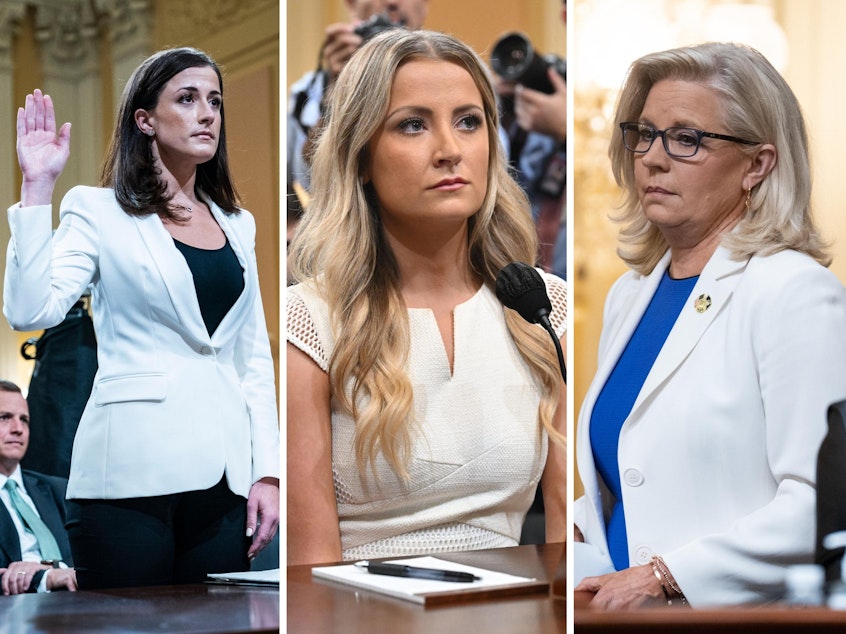Rep. Cheney pays tribute to the Women's Suffrage Movement in closing Jan. 6 remarks

Rep. Liz Cheney, R-Wyo., paid tribute to the Women's Suffrage Movement while wearing the symbolic suffragette color of white during her closing remarks Thursday at the Jan. 6 Select Committee Hearing.
During the hearing, Sarah Matthews also wore suffragette white while testifying before the committee. Matthews was deputy press secretary to former President Donald Trump, and testified alongside Matthew Pottinger, who was the deputy national security adviser to Trump.
"We've seen bravery and honor in these hearings, and Ms. Matthews and Mr. Pottinger, both of you will be remembered for that, as will Cassidy Hutchinson," Cheney said.
Hutchinson is a former aide to then-White House Chief of Staff Mark Meadows. Her testimony has revealed key details about the Jan 6. attack on the Capitol, including that Trump knew the crowd at his rally was armed.
Cheney praised Hutchinson for testifying before millions.
Sponsored
"She knew all along that she would be attacked by President Trump and by the 50, 60 and 70-year-old men who hide themselves behind executive privilege," she said.
Hutchinson also wore the symbolic suffragette white during her testimony.
Cheney commended Matthews and Hutchinson, along with other women who testified at the hearings, including Caroline Edwards, Wandrea "Shaye" Moss and Ruby Freeman.
She said these witnesses were an inspiration to American women and to American girls.
"We owe a debt to all of those who have and will appear here," Cheney said.
Sponsored
Wearing a symbolic white blazer, Cheney acknowledged the history of the room the hearing was held in – the site of the Committee on Women's Suffrage, a powerful force in helping women gain the right to vote.
"In this room in 1918, the Committee on Women's Suffrage convened to debate whether women should be granted the right to vote," Cheney added.
"This room is full of history, and we on this committee know we have a solemn obligation to not idly squander what so many Americans fought and died for." [Copyright 2022 NPR]



